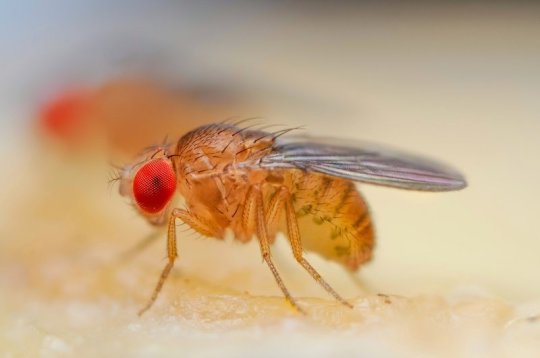
The experience of a fruit fly dying from cancer may seem worlds away from that of a human with a life-threatening tumor, yet University of California, Berkeley, researchers are finding commonalities between the two that could lead to ways to prolong the lives of cancer patients.
Fruit fly research is already pointing to a new anti-cancer strategy distinct from the conventional goal of destroying the tumor or cancerous cells. Instead, the research suggests, launching an attack against the destructive chemicals the cancer is throwing off could increase survival rates and improve patients' health.
"It's a really complementary way of thinking about therapy," said David Bilder, UC Berkeley professor of molecular and cell biology. "You're trying to help the host deal with the effects of the tumor, rather than killing the tumor itself."
Jung Kim, a postdoctoral fellow in Bilder's lab, recently discovered that tumors in fruit flies release a chemical that compromises the barrier between the bloodstream and the brain, letting the two environments mix -- a recipe for disaster in numerous diseases, including infection, trauma and even obesity. In collaboration with the labs of UC Berkeley professors David Raulet and Kaoru Saijo, Kim and Bilder subsequently demonstrated that tumors in mice that release the same chemical, a cytokine called interleukin-6 (IL-6), also make the blood-brain barrier leaky.
More importantly, they were able to extend the lifespan of both fruit flies and mice with malignant tumors by blocking the effect of the cytokine on the barrier.
| Webiste | ScienceDaily- https://www.sciencedaily.com/ |
|---|---|
| Article Name | Can fruit fly research help improve survival of cancer patients? |
| Source | University of California - Berkeley |
| You can find the article here | https://www.sciencedaily.com/releases/2021/09/210916131326.htm |